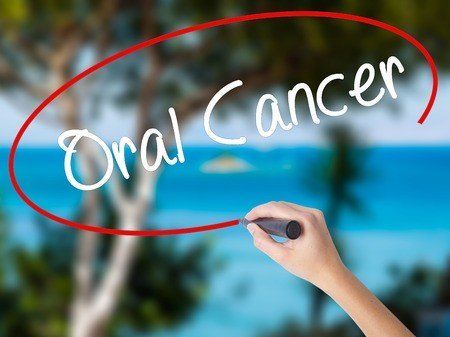Leading Risk Factors for Oral Cancer
To pin down a definition, oral cancer refers to cancer that originates in the mouth or back of the throat. Common symptoms, per the National Institute of Dental and Craniofacial Research, include irritation, soreness, white or red patches inside the mouth, swelling in the jaw or throat, and difficulty chewing or swallowing. As always, if you start displaying any or all of these symptoms, it’s best to consult with your doctor immediately. To be sure you are prepared for all possibilities, here are some of the risk factors for oral cancer to help you determine if you’re susceptible in any way.
Tobacco and Alcohol Together
Both tobacco and alcohol are known carcinogens that have been linked with oral cancer. Most forms of cancer, according to the National Cancer Institute (NCI), can be brought on by heavy drinking, specifically over seven drinks a week for women and over 14 for men. The fermentation process for alcohol, which can involve carcinogenic additives, is among the many reasons why alcohol has been linked to neck, head, liver, and esophageal cancer. When you digest alcohol, the results can negatively impact your lipids and DNA and lower the body's ability to take in necessary minerals and vitamins, including vitamins A through E, says the NCI.
Perhaps more so than alcohol, tobacco is known for being a main risk factor of oral cancer, with 90 percent of oral cancer patients reportedly using tobacco, per the Mouth Cancer Foundation. However, using both tobacco and alcohol together raises the risk greatly compared to those who use only alcohol or tobacco. It's believed that alcohol, which dries the mouth out, weakens the body’s defenses in fighting off the carcinogens in tobacco, which enter the mouth’s tissues and elevate the risk of oral cancer.
Human Papillomavirus
This might sound strange, but human papillomavirus (HPV) could soon pass tobacco as the main cause of oral cancer within the next decade. The effects of HPV, a very common STD, are short-term for most, only lasting about two years and not having a great effect on health. However, some HPV patients can see growths in their tissues that could result in oral cancer.
Age and Diet
Researchers have pointed out that a poor diet is often the by-product of serious alcohol use and even abuse. As well, individuals who lack necessary vegetables and fruits in their diet could have greater exposure to oral cancer. Studies have also shown this risk grows for individuals over the age of 40. With that, all individuals and especially those over 40 should maintain a strong diet of vegetables, fruits, calcium, vitamin C, and antioxidants, such as green tea, to help lower the risk.
Lifestyle Alterations Can Lower Risk
Coined the "lifestyle disease," per the Mouth Cancer Foundation, oral cancer can be avoided with the help a few sizable lifestyle alterations. Most importantly, abstaining from drinking and tobacco products for at least 10 to 15 years is absolutely crucial for decreasing your likelihood of developing oral cancer in the future.
If you think you have signs of oral cancer, you need to see your dentist ASAP. To find out how you can save as much as 20 percent off your dental visits, read more about our New Hampshire discount dental plans for individuals, families, and small business owners. Click here.
Copyright: netsay
/ 123RF Stock Photo











